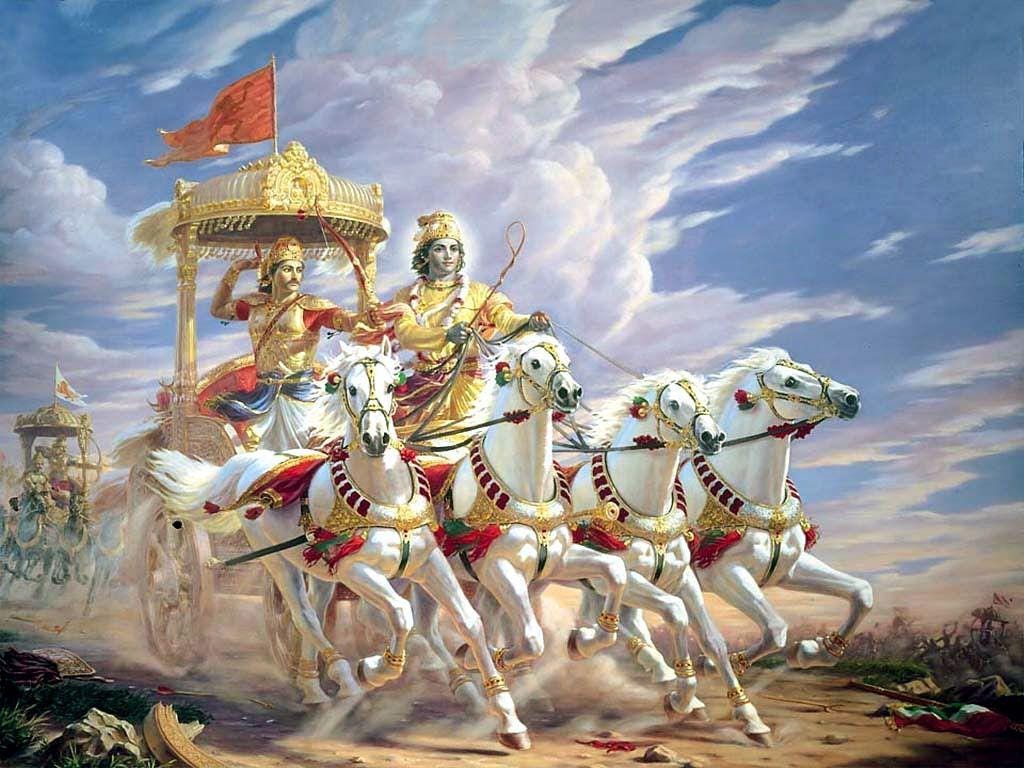Krishna, the divine charioteer of Arjuna, played a pivotal role in shaping the events of the Mahabharata. While many perceive him as a divine force ensuring the triumph of Dharma, his actions also exhibit unparalleled strategic brilliance. His role in the Kurukshetra War can be interpreted from both spiritual and political perspectives.
Krishna as the Divine Guide
One of Krishna’s most defining moments in the Mahabharata is the Bhagavad Gita, where he imparts profound wisdom to Arjuna. He teaches the principles of Karma Yoga (selfless action), Bhakti (devotion), and Jnana (knowledge), helping Arjuna overcome doubt and fulfill his duty as a warrior.
Beyond the battlefield, Krishna serves as the upholder of Dharma, guiding the Pandavas through challenges and ensuring righteousness prevails.
Krishna as the Master Strategist
While revered as a divine figure, Krishna also demonstrates exceptional strategic acumen throughout the war:
Breaking Bhishma’s Vow: He advises Arjuna to use Shikhandi against Bhishma, knowing Bhishma would not fight someone he perceived as a woman.
Exposing Karna’s Vulnerability: Krishna ensures that Arjuna attacks Karna when his chariot is stuck, capitalizing on both fate and opportunity.
Dronacharya’s Fall: He orchestrates a deceptive tactic by spreading the false news of Ashwatthama’s death, leading to Dronacharya’s surrender.
Protecting Arjuna: Krishna intervenes at crucial moments, such as deflecting Karna’s lethal weapon aimed at Arjuna.
A Dual Interpretation
Krishna’s role blurs the line between divine intervention and political maneuvering. Was he merely fulfilling his divine duty, or was he the ultimate tactician ensuring the Pandavas’ victory?
Regardless of interpretation, Krishna remains the guiding force of the Mahabharata, demonstrating that Dharma sometimes requires wisdom, strategy, and decisive action to prevail.
For any complaints or removal requests regarding the content I've generated, please use the contact form provided at: https://www.inderneilk.com/contactus





